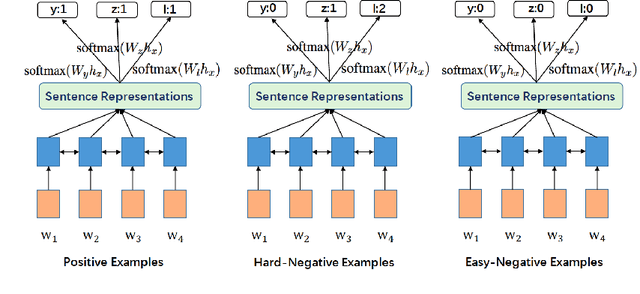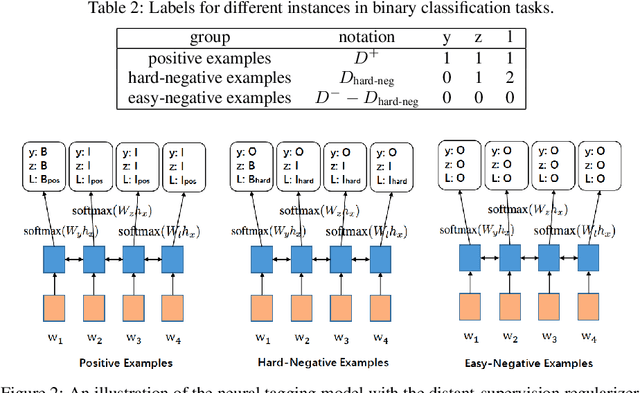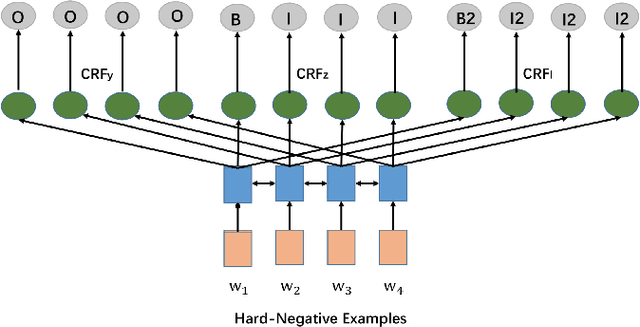DSReg: Using Distant Supervision as a Regularizer
Paper and Code
May 30, 2019



In this paper, we aim at tackling a general issue in NLP tasks where some of the negative examples are highly similar to the positive examples, i.e., hard-negative examples. We propose the distant supervision as a regularizer (DSReg) approach to tackle this issue. The original task is converted to a multi-task learning problem, in which distant supervision is used to retrieve hard-negative examples. The obtained hard-negative examples are then used as a regularizer. The original target objective of distinguishing positive examples from negative examples is jointly optimized with the auxiliary task objective of distinguishing softened positive (i.e., hard-negative examples plus positive examples) from easy-negative examples. In the neural context, this can be done by outputting the same representation from the last neural layer to different $softmax$ functions. Using this strategy, we can improve the performance of baseline models in a range of different NLP tasks, including text classification, sequence labeling and reading comprehension.
 Add to Chrome
Add to Chrome Add to Firefox
Add to Firefox Add to Edge
Add to Edge